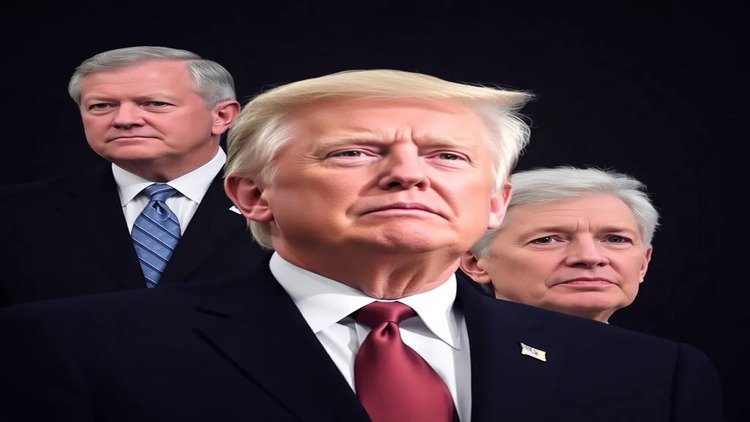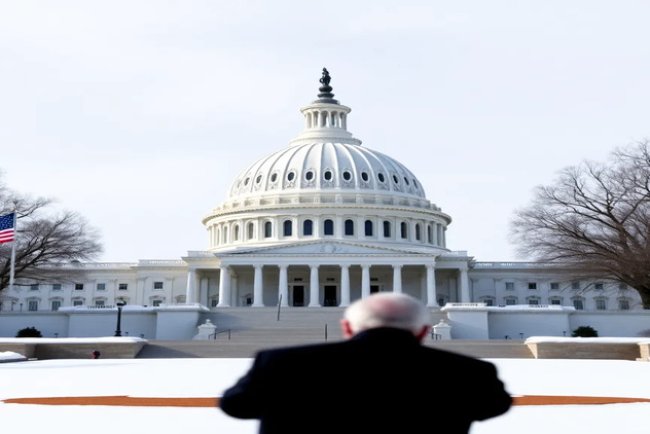Why GOP Senate leader hopefuls might want to avoid talk of new Trump tariffs
As GOP Senate leader hopefuls gear up for the upcoming election cycle, the topic of new Trump tariffs looms large in their discussions.

As the Senate Republican leadership election approaches, candidates may be cautious about discussing potential new tariffs proposed by former President Trump. This hesitation stems from concerns that such discussions could alienate moderate voters and complicate their positions within the party. With the GOP aiming to unify and strengthen its base, leaders are likely to focus on more pressing issues that resonate with a broader audience, rather than potentially divisive tariff policies.
Key Considerations:
-
Electoral Strategy: Candidates are aware that discussing tariffs could lead to backlash from moderate Republicans and independents who may view such policies as detrimental to the economy.
-
Party Unity: The GOP is striving for cohesion as it prepares for upcoming elections, and controversial topics like tariffs could create rifts among party members.
-
Focus on Leadership Qualities: Candidates are likely to emphasize their leadership capabilities and commitment to party values, steering clear of contentious economic policies that could detract from their messages.
-
Public Sentiment: With the economy being a critical issue for voters, candidates may prefer to address economic growth and job creation rather than engage in discussions about tariffs that could be perceived as protectionist.
In summary, as GOP Senate leader hopefuls navigate their campaigns, they may choose to sidestep discussions about new Trump tariffs to maintain a unified front and appeal to a wider voter base.
Continuing from the previous points, GOP Senate leader hopefuls are also likely to consider the broader implications of tariff discussions on their platforms:
-
Impact on Key Industries: Many states represented by GOP senators rely heavily on industries that could be adversely affected by new tariffs, such as agriculture and manufacturing. Candidates may want to avoid alienating these critical sectors by promoting policies that could lead to increased costs for consumers and businesses alike.
-
Historical Context: The GOP has traditionally positioned itself as the party of free markets and limited government intervention. A shift towards protectionist tariffs could contradict this long-standing ideology, making it a sensitive topic for candidates who want to maintain the party's economic principles.
-
Voter Priorities: Recent polling indicates that voters are more concerned with issues like inflation, healthcare, and job security than with trade policies. As such, candidates may prioritize these topics in their messaging to align with constituents' immediate concerns.
-
Potential Backlash from Business Groups: Business organizations and trade associations often advocate against tariffs, arguing they can hinder economic growth and lead to job losses. Candidates may be wary of alienating these influential groups that provide crucial support during campaigns.
-
Navigating Trump’s Influence: While Trump remains a significant figure in the GOP, candidates must balance their loyalty to his policies with the need to attract a diverse electorate. This balancing act can be particularly challenging when it comes to tariff discussions, as they could be seen as either aligning too closely with Trump or distancing themselves from his legacy.
-
Future Policy Directions: As the party looks ahead, candidates may prefer to focus on innovative solutions for economic recovery and sustainability rather than revisiting contentious tariff debates. This forward-thinking approach could help them build a platform that resonates with both traditional GOP voters and those seeking new ideas.
as GOP Senate leader hopefuls prepare for their campaigns, the topic of new Trump tariffs presents a complex challenge. By prioritizing broader economic issues and maintaining party unity, they can effectively navigate the political landscape while appealing to a diverse range of voters. The ability to balance these factors will be crucial for candidates seeking leadership positions within the party.
FAQ:
Q1: Why are GOP Senate leader hopefuls hesitant to discuss new Trump tariffs?
A1: Candidates are cautious about discussing new tariffs because they may alienate moderate voters and create divisions within the party. They aim to focus on issues that resonate more broadly with constituents, such as economic growth and job creation.
Q2: What impact could new tariffs have on key industries?
A2: New tariffs could adversely affect industries such as agriculture and manufacturing, which are vital to many states represented by GOP senators. Increased costs from tariffs could lead to higher prices for consumers and potential job losses in these sectors.
Q3: How do tariffs align with the GOP's traditional economic principles?
A3: The GOP has historically positioned itself as the party of free markets and limited government intervention. Emphasizing tariffs could contradict these principles, making it a sensitive topic for candidates who want to uphold the party's economic ideology.
Q4: What issues are voters currently prioritizing over tariffs?
A4: Recent polls indicate that voters are more concerned about inflation, healthcare, and job security than trade policies like tariffs. Candidates are likely to focus on these pressing issues to align with their constituents' immediate concerns.
Q5: How might business groups react to discussions of new tariffs?
A5: Business organizations and trade associations typically oppose tariffs, arguing they can hinder economic growth and lead to job losses. Candidates may be wary of alienating these influential groups, which are crucial for campaign support.
Q6: How does Trump’s influence factor into candidates' decisions about tariffs?
A6: While Trump remains a significant figure in the GOP, candidates must balance their loyalty to his policies with the need to attract a diverse electorate. This can be challenging, especially when it comes to potentially divisive topics like tariffs.
What's Your Reaction?
















